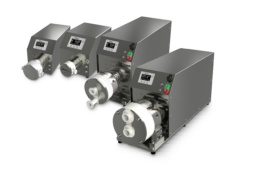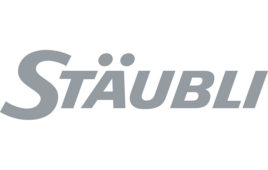One company’s journey to develop and implement augmented reality technology for smart glasses in the biopharmaceutical manufacturing space.
Before we launch into one company’s specific application and implementation of AR/VR, let’s define the difference between AR (augmented reality) and VR (virtual reality).
Virtual Reality vs. Augmented Reality
VR is a computer-generated simulation or recreation of a real life environment or situation, which is achieved by wearing a headset. Users feel like they are experiencing the simulated reality firsthand. AR, on the other hand, is a technology that layers computer-generated enhancements atop an existing reality and is typically developed into apps.
Recap: INTERPHEX 2015 Exhibitor Awards
During last year’s INTERPHEX Exhibitor Awards, Apprentice Field Suite took home the ‘Best New Product/Service’ award for its three smart glasses apps: Tandem, Manuals, and Gauge. These apps leverage AR through smart glasses—empowering operators and engineers in machine maintenance, functionality, and repairs in the biopharmaceutical manufacturing space.
Angelo Stracquatanio, Co-Founder of Apprentice Field Suite, and Gary Pignata, Partner at Apprentice Field Suite, participated in a Q&A about their experiences at INTERPHEX 2015, how smart glasses (and its applications) continue to evolve, and what they are looking forward to at this year’s show.
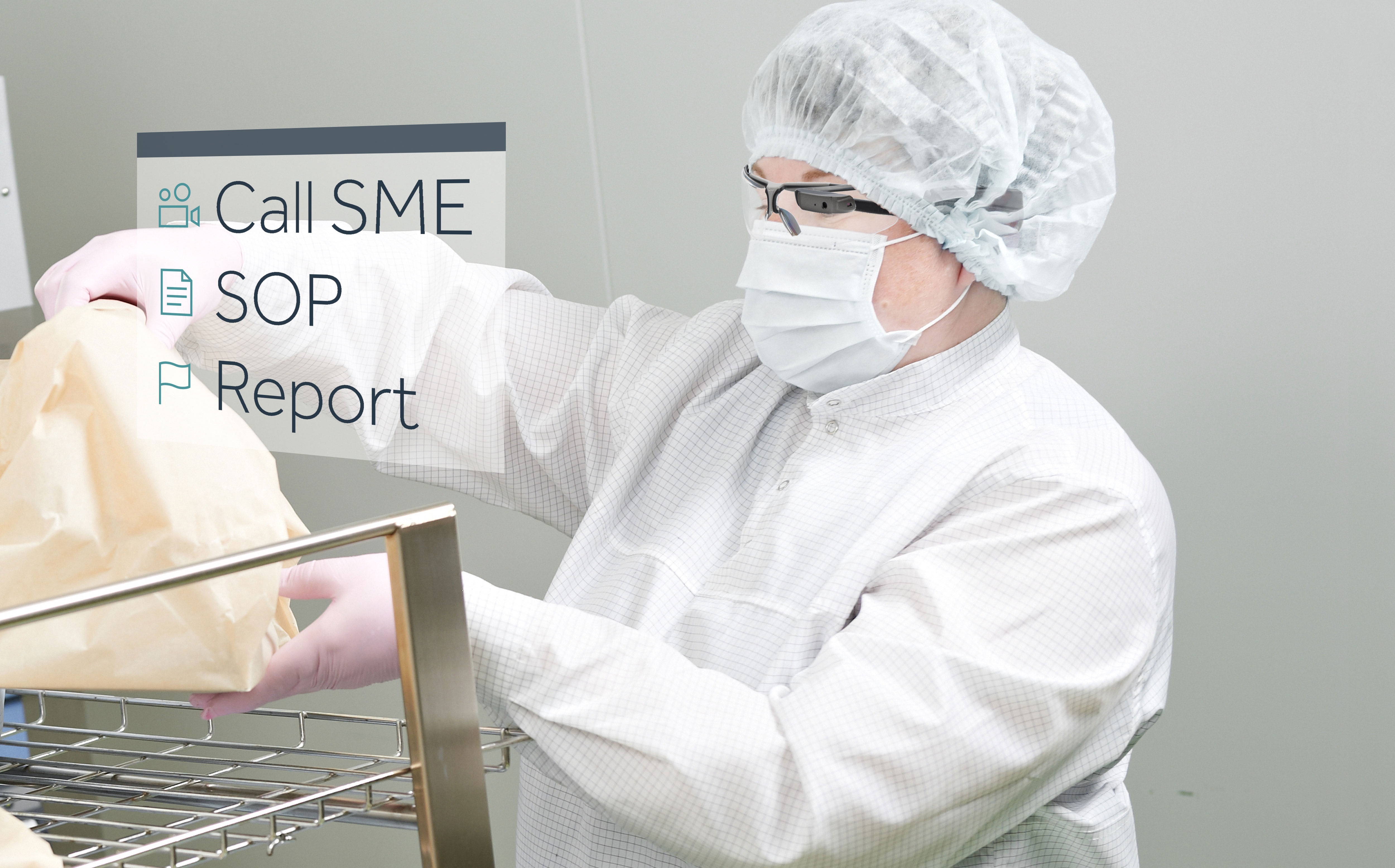
Q: I see that you won ‘Best New Product/Service’ at INTERPHEX 2015—congrats! Could you tell us about your smart glasses?
A: Winning the ‘Best New Product/Service’ award in 2015 was an incredible experience for us; it acted as a great Launchpad for our business. Since the show last year, we have added many new clients and now work with five of the top 10 biopharmaceutical companies in the world. We offer a complete augmented reality smart glasses solution for biopharma manufacturing and R&D. We have a trio of applications that are aimed at specific use cases within the industry, and over the last year we’ve proven a fast and high ROI with our customers.
Q: How did the idea of applying smart glasses to biopharma come about?
A: Three years ago, our co-founders were having a conversation about different pain points in the industry and a lightbulb went off in the head of one of our co-founders, Angelo Stracquatanio. As a smart glasses pioneer, mobile solutions provider, and integration expert, he realized that smart glasses could solve a lot of the problems being discussed. He began working on a smart glasses mobility solution that utilized augmented reality tailored specifically to biopharmaceutical manufacturing and R&D.
Q: Could you describe the three applications of your smart glasses further and their specific uses in the biopharma space?
A: The Apprentice Field Suite’s three applications run on smart glasses like the Microsoft’s HoloLens, Vuzix’s M100, and Epson’s BT200. To increase safety and reduce mistakes, the applications provide hands-free access to essential information for deskless workers in the manufacturing suite.
- TANDEM provides a sophisticated troubleshooting interface. A remote engineer becomes a telepresence, able to pinpoint process issues for on-the-floor operators by ‘seeing what operators see,’ and drawing in their field of vision in real-time. Engineers can also use our software to bring graphs, historical process data, and P&ID’s into the manufacturing suite for live collaborative troubleshooting.
- MANUALS is a process and workflow aid. Our heads-up display is manipulated by voice commands or a series of hand gestures, providing hands-free access to the latest Standard Operating Procedures, Batch Records, Job Plans, etc. Each workflow can be a fully animated step-by-step augmented reality overlay or simply a list of text-based procedures.
- GAUGE provides essential data. Computer vision automatically reads and saves analog gauge values, while augmented reality shows which bioreactor is still in operation before you attempt to clean the vessel, and a photo/video element allows self-reporting of unsafe conditions.
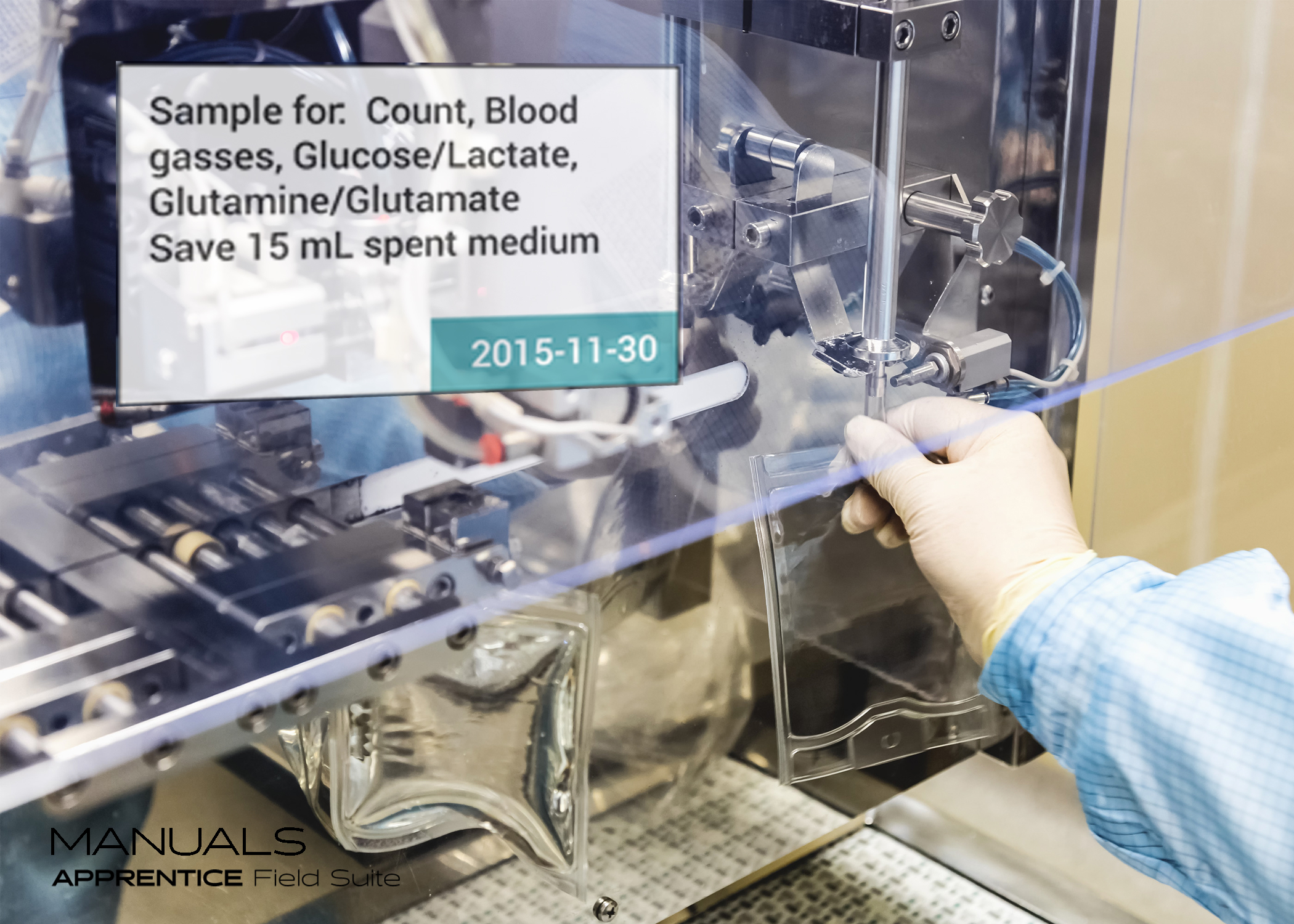
Q: How do these glasses differ from its competitors, such as Google Glass?
A: For many, the first introduction to smart glasses was the big splash made by Google Glass several years ago. The technology has come a long way since then with a dozen other smart glasses now available, and a dozen more launching in the next year or so.
We don’t manufacture our own glasses and instead utilize the best of the existing manufacturers, depending on environment. Our Apprentice technology was designed to work with all or most of the current and future glasses providers. The fact is that every global pharma manufacturer has several different environments with very different requirements. Our experience with mobility solutions, augmented reality, and smart glasses in this space helps us customize the right glasses for the right environment within our clients’ facilities.
Q: Can your smart glasses be used in other capacities in the pharma space?
A: Absolutely. Our solution is used in virtually every area of manufacturing, including engineering, maintenance, facilities, and safety. Trainers can do live simultaneous global training from the perspective of the trainer’s eyes. CMOs can provide access to clients, minimizing travel. Equipment manufacturers can have their best technician at every job site. Plus, it seems every time we kick off a program with a customer, new use cases pop up where they can extract additional value. We’re currently exploring more ways to use our technology in the R&D lab as well as packaging/warehousing.
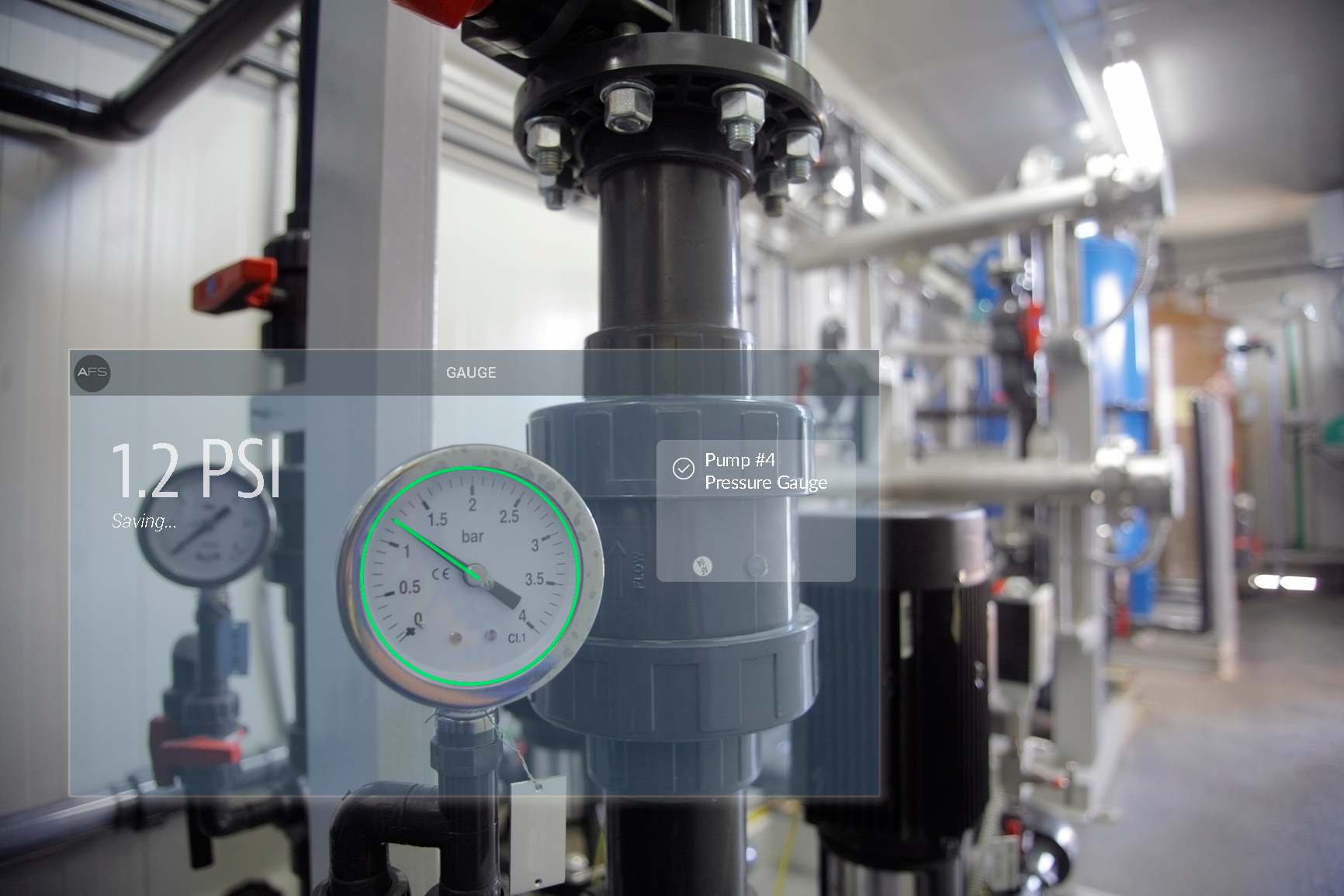
Q: What are some of the greatest challenges in the biopharmaceutical manufacturing space?
A: Some of the greatest challenges are working through different privacy concerns as well as helping IT groups manage the devices throughout the organization. We’ve come up with solutions to both of these areas to address our customers concerns.
Q: What are some of the trends you’ve seen in the biopharma space?
A: We’re seeing more of an appetite for cutting edge technology to help solve challenging problems within the space.
Q: I see that you’re a Jersey City-based startup. Could you tell us a little bit about your company’s history and its vision?
A: Apprentice Field Suite was founded three years ago with the specific intention to solve problems and improve efficiencies in the complex biopharma manufacturing process. As part of our vision we knew it was critical that we provide a complete solution with obvious ROI on the first day of a new client launch. This meant we had to take a different approach than what is typically done with new technology. Instead of making our solution available to all industries, requesting that an interested company in a given industry invest their resources to create an applicable viable product, we instead focused specifically on our industry. We have already done the upfront biopharma-specific customization so that our complete solution (smart glasses, integration, training, and support) can immediately improve efficiency, reduce downtime, and minimize turnover. Our clients are major biopharma manufacturers, biotech companies, CMOs, and equipment manufacturers.
Q: What was one of your favorite events at INTERPHEX 2015?
A: We were really impressed by the 3D pavilion at last year’s show, and we’re looking forward to learning about the new advancements at this year’s event!
Q: What are you most looking forward to for INTERPHEX 2016?
A: We’re looking forward to seeing how attendees will react to our latest innovation, an ‘Augmented Reality Experience for Biopharmaceutical Manufacturing and R&D.’ In other words, we developed a special room on the show floor where attendees can step into and experience our smart glasses first-hand. We’ve designed three unique tasks so attendees can leverage our smart glasses to see how our solution works firsthand.
This article can also be found in the INTERPHEX 2016 Show Daily: Tuesday, April 26.
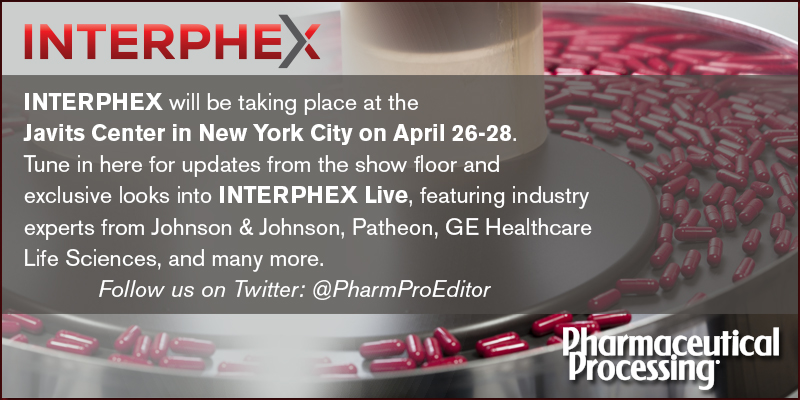
Follow us on Twitter this week for the latest updates on INTERPHEX!

